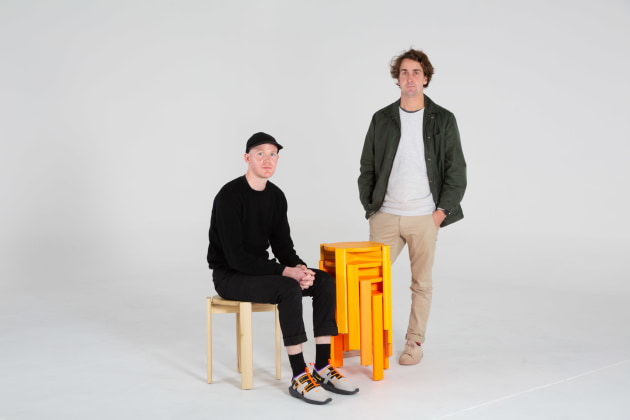Turning to Tulipwood
The American Hardwood Export Council (AHEC) recently approached eight high profile Australian designers to reproduce some of their existing designs in American tulipwood.
Anne-Claire Petre, Adam Goodrum, Adam Markowitz, Coco Reynolds, Dowel Jones, Jon Goulder, Ross Gardam and Tom Skeehan rose to the challenge and the resulting collection was titled Replaced.
Tulipwood has been favoured in Europe for generations, but is little known in Australia. According to AHEC it is one of the most beautiful and easily worked US hardwoods. Light, straight grained and even textured, its colour ranges from blond to brown and even to green and purple in places.
Encouraged to embrace the natural variation in the material provided, the designers were said to have confronted the Australian preference for uniformity in timber.

In recreating his iconic Molloy chair, Adam Goodrum said ‘The chair components are accentuated by the contrasting grain directions where they meet to become one. The colour variation in tulipwood gives a further opportunity to emphasise the different elements in the design.”
Ross Gardam (shown above) replaced the American oak of his classic Oak Pendant with tulipwood and similarly found it emphasised joins in the design which were secondary in the original product. The results were striking.

John Goulder’s Glissando Credenza, which is on permanent show in the National Gallery of Australia in American walnut, has taken on a ‘whole new look and meaning’ in tulipwood, claims its creator, and become a ‘capsule of environmentally responsible furniture production and philosophy’.
Simon Says stools by Dowel Jones
The American hardwood forest has been sustainably managed for generations. Each year trees are selectively harvested and replaced by new growth through natural generation. Growth in the forest far exceeds harvest. American tulipwood is one of the most prolific hardwoods. Growth exceeds harvest in all US states and net volume (after harvest) is increasing by 19.7 million cubic metres each year.
Coco Reynolds with one of the tulipwood renditions of her work.
Evostyle, who manufactured all the designs for Replaced meticulously recorded all timber used, energy inputs and waste produced. By working with the natural colour of the tulipwood and using it to enhance their designs, wastage has been kept to a minimum. This data enabled AHEC to measure the environmental impact of each and every design in the collection. Initial calculations show that the tulipwood used to create all the designs in the collection would be replaced in the US forest in less than 1 second!

Anne-Claire Petre’s Emi pod was remade in tulipwood and said: ‘In a world where throwaway culture has become predominant, it is of utmost importance to have an environmental approach to design and manufacture. It is a lifestyle choice that extends from my personal life and attitude to waste, into my business and my work. It is our role as designers to educate the public about better design and sustainability and emphasise why it is critical to our economy, to our planet and to people. Using sustainable timbers in furniture is the least we can do’.
The Replaced collection is currently on show at Denfair from June 14–16.
Learn more about American Export Hardwood Council at www.americanhardwood.org
Photos: Jayson Packett






